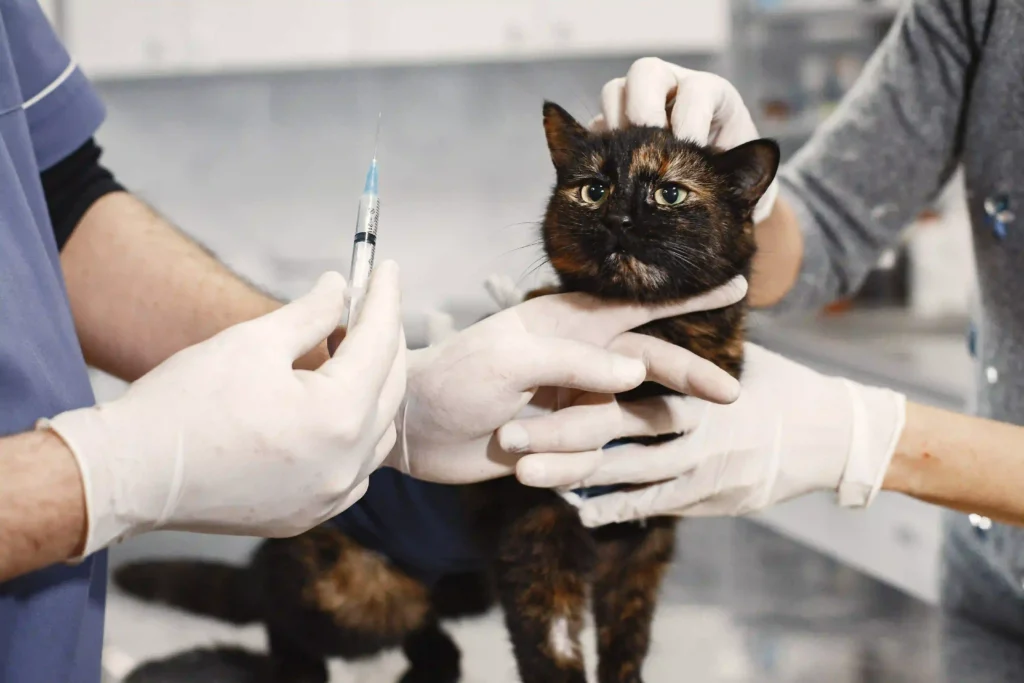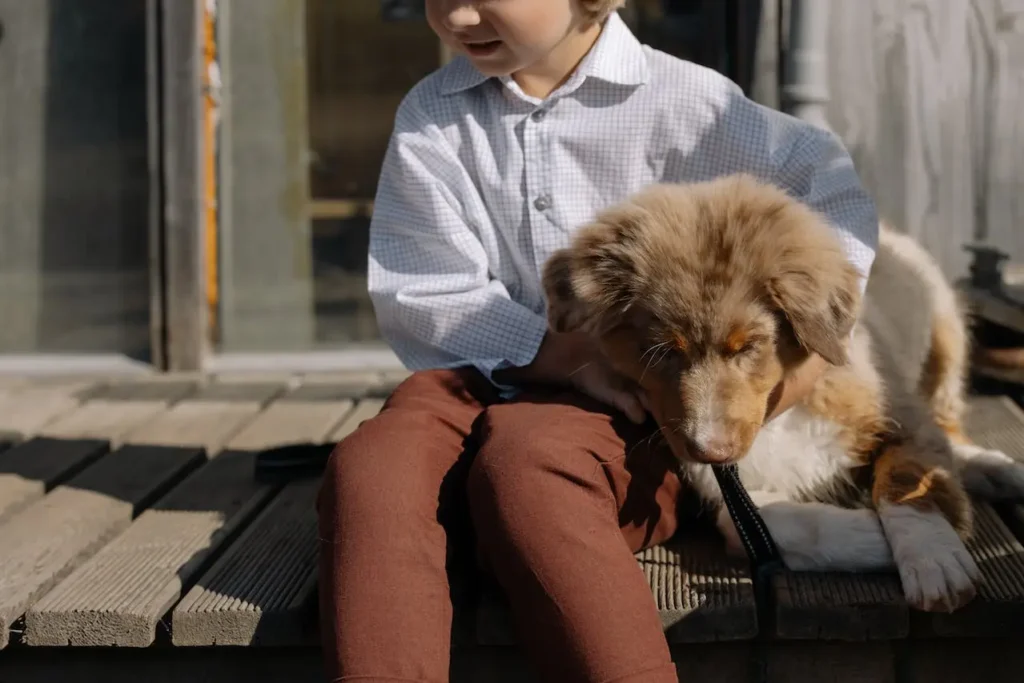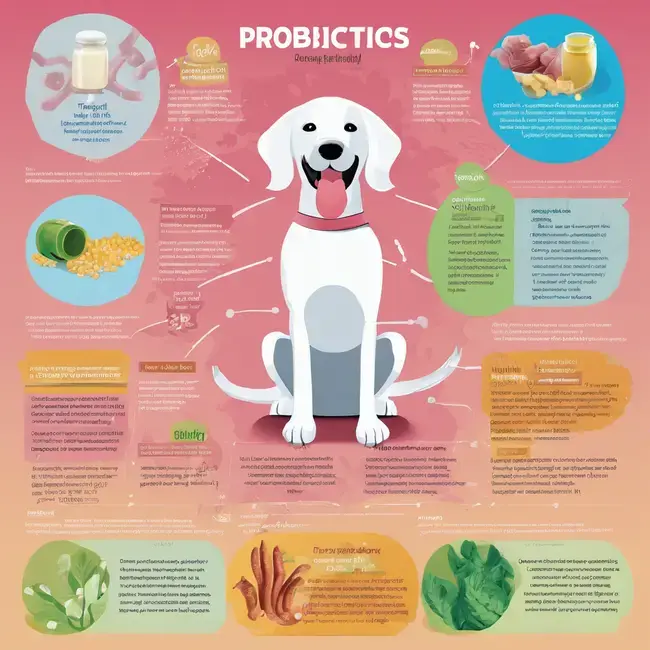Can Dogs Eat Rice? Discover 8 Health Benefits and Risks
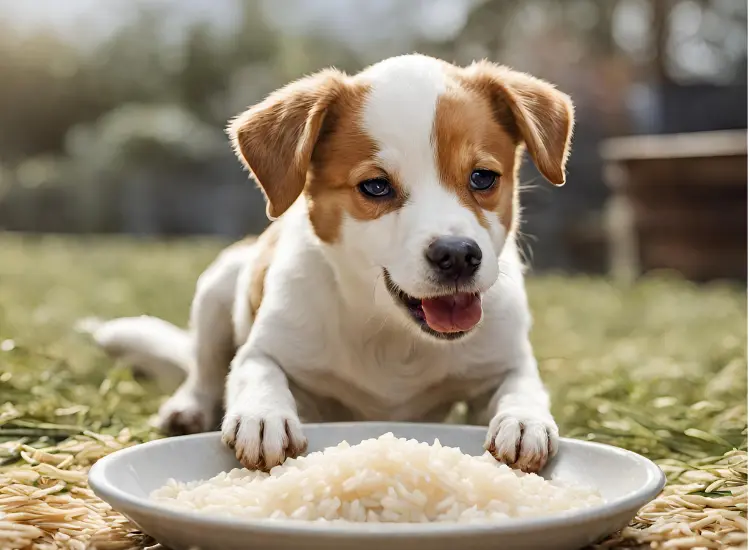
- Can dogs eat rice?
- What is the best rice for dogs?
- Nutritional value of rice for dogs
- Health benefits of rice for dogs
- How much rice can a dog eat?
- Can dogs eat rice everyday?
- Can dogs eat brown rice?
- Can dogs eat brown rice everyday?
- Can dogs eat white rice?
- Can dogs eat basmati rice?
- Can dogs eat beans and rice?
- Chicken and rice for dogs – a popular homemade meal
- Risks of rice for dogs
- Other safe foods and fruits for dogs to eat
- So, Is rice good for dogs?
- Frequently Asked Questions (FAQs)
- References
This post may contain affiliate links, meaning I may earn a commission if you make a purchase, at no extra cost to you. I only recommend products I trust. Thank you for your support.
Can dogs eat rice? This is a common question among pet owners who are looking for safe and healthy food options for their dogs.
Rice is a staple food for many humans, but is it suitable for dogs as well?
In this article, we will explore the nutritional value of rice for dogs, the health benefits it can provide, as well as the potential risks associated with feeding rice to dogs and address questions regarding rice for dogs.
So, let’s dive in and find out if rice is a good choice for your dogs.
Can dogs eat rice?
Yes, dogs can eat rice as part of their diet. Rice, particularly plain cooked white or brown rice, is often recommended for dogs with digestive issues like diarrhea as it is gentle on their stomachs. It is easily digestible and can help alleviate gastrointestinal discomfort.
However, it’s important to note that rice should be served plain without any seasoning, sauces, or additives, as these can be harmful to dogs.
Additionally, rice should only be a small part of a balanced diet for dogs, ideally making up no more than 10-15% of their total calorie intake.
What is the best rice for dogs?
White rice is a good option for dogs with sensitive stomachs, while brown rice offers additional fiber and nutrients.
The most recommended types of rice for dogs are plain, cooked white rice and brown rice. These varieties are easily digestible and provide dogs with essential nutrients.
When it comes to choosing the best rice for dogs, it is important to consider the nutritional content and digestibility.
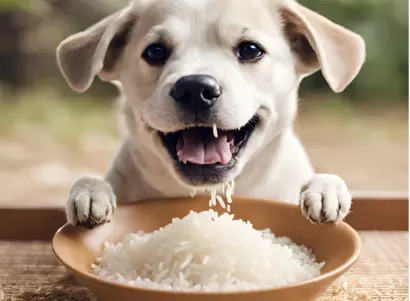
White Rice
- Advantages: Easily digestible and can help soothe an upset stomach.
- Suitable for: Active dogs and those with sensitive stomachs or those experiencing digestive issues such as diarrhea.
Brown Rice
- Advantages: Contains more fiber, essential vitamins, and minerals compared to white rice. It also has a lower glycemic index.
- Suitable for: Dogs with moderate activity levels and those that need to manage their blood sugar levels, such as those with diabetes.
Nutritional value of rice for dogs
Rice is a carbohydrate rich food that can provide dogs with energy and essential nutrients.
Rice, particularly brown rice, offers various nutritional benefits for dogs, making it a healthy addition to their diet.
Here are some key nutritional values of rice for dogs:
1. Carbohydrates
- Rice is a good source of easily digestible carbohydrates, which are the primary source of energy for dogs.
2. Fiber
- Brown rice, in particular, contains fiber that aids in digestion which can help to regulate bowel movements and relieve constipation.
3. Low calories
- Cooked brown rice is low in calories, making it suitable for dogs that need to manage their weight.
- Its lower calorie content compared to other grains can help prevent excessive calorie intake, supporting a healthy weight for dogs.
4. Minerals
- Rice for dogs is packed with essential minerals including calcium, iron, and riboflavin, brown rice supports a dog’s overall health.
5. Vitamins
- Rice for dogs contains various vitamins, such as B2 (riboflavin), B9 (folate), and D, which contribute to a variety of health benefits for dogs.
Health benefits of rice for dogs
Feeding rice to dogs can offer several health benefits.
Here are 8 key benefits of rice for dogs:
1. Digestive health
- Both white and brown rice can be gentle on a dog’s stomach and are easily digestible, making them beneficial for dogs with gastrointestinal issues or those experiencing diarrhea.
2. Source of energy
- Rice, being a good source of easily digestible carbohydrates, provides dogs with an energy boost, which is especially beneficial for active dogs or those needing a quick source of energy.
3. Nutrient content
- While not as nutrient dense as some other foods, rice contains essential nutrients such as B vitamins (niacin, thiamin), vitamin E, and minerals like iron essential for a dog’s overall health.
4. Hypoallergenic properties
- Rice is considered hypoallergenic, making it a suitable option for dogs with food sensitivities or allergies.
5. Soothing upset stomachs
- The bland nature of rice can help soothe a dog’s upset stomach and may be part of a veterinarian-recommended bland diet for dogs recovering from digestive upset.
6. Weight management
- Rice can be a useful component in a weight management plan for dogs due to its low fat content and moderate calorie density.
- It can help provide a feeling of fullness without contributing to excessive weight gain.
7. Gastrointestinal support
- In addition to being gentle on the digestive system, rice for dogs can help absorb excess moisture in the gastrointestinal tract, aiding in the management of mild digestive issues.
8. Recovery from illness
- Rice for dogs is often recommended as part of a bland diet for dogs recovering from certain illnesses, surgeries, or digestive upsets. Its mild and easily digestible nature can support the recovery process.
How much rice can a dog eat?
The amount of rice a dog can eat depends on several factors, including the dog’s size, age, activity level, and overall health.
As a general guideline, rice should only make up a small portion of a dog’s overall diet, ideally around 10-15% of their total daily calorie intake.
For specific portion sizes, you can follow these approximate guidelines:
- Small dogs under 20 pounds: About ¼ to ½ cup of cooked rice per day.
- Medium dogs between 20-50 pounds: About ½ to 1 cup of cooked rice per day.
- Large dogs more than 50 pounds: About 1 to 2 cups of cooked rice per day.
Can dogs eat rice everyday?
Yes, dogs can eat rice every day as part of their diet, but it’s essential to ensure that the rice is served plain and in moderation.
Rice should not make up the majority of their daily food intake, as dogs require a variety of nutrients from different food sources.
Incorporate rice into your dog’s diet alongside protein sources, vegetables, and other essential nutrients to provide them with a well-rounded meal plan.
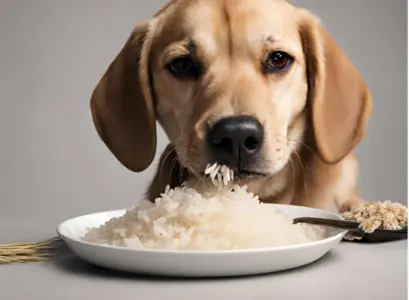
Can dogs eat brown rice?
Yes, dogs can eat brown rice but ensure it is thoroughly cooked. Brown rice is a whole grain that contains bran, germ, and endosperm, which supports digestive health and can be beneficial for dogs with constipation.
It is considered a healthy option for dogs due to its higher fiber content which aids in digestion and can help regulate bowel movements.
Brown rice also contains essential nutrients such as B vitamins, antioxidants, and essential minerals such as calcium, iron, and riboflavin contributing to a dog’s overall health.
Can dogs eat brown rice everyday?
Yes, dogs can eat brown rice daily in moderation as part of a balanced diet. Brown rice offers nutritional benefits like fiber, vitamins, and minerals, contributing to your dog’s overall health.
However, it is important to remember that rice should not be the sole source of nutrition for dogs. It should be supplemented with other protein rich foods to ensure a complete and balanced diet.
Please note that overconsumption of carbohydrates found in brown rice can contribute to weight gain in dogs, especially when combined with their regular food.
Can dogs eat white rice?
Yes, dogs can eat white rice but ensure it is cooked plain without any added seasonings or ingredients. White rice is easily digestible and considered good for dogs with gastrointestinal issues or an upset stomach.
White rice can be included in a dog’s diet as a bland meal to help alleviate digestive discomfort.
However, it is important to feed white rice in moderation and as part of a balanced diet, as it lacks some of the nutrients found in brown rice.
Can dogs eat basmati rice?
Yes, dogs can eat basmati rice in moderation. Basmati rice is safe for dogs to eat and can be a good choice due to its low glycemic index and easy digestibility. Veterinarians often recommend white basmati rice as a meal for dogs with upset stomachs.
Basmati rice provides dogs with energy and nutrients, making it a suitable addition to their diet. When feeding basmati rice to dogs, it’s essential to prepare it without adding any flavor, seasonings, or salt.
Can dogs eat beans and rice?
Yes, dogs can eat beans and rice in moderation. Beans, such as green beans, black beans, lima beans, pinto beans, garbanzo beans, and kidney beans, can be a healthy addition to a dog’s diet when prepared without harmful ingredients.
However, caution should be exercised with kidney beans, as raw kidney beans are toxic to dogs and must be thoroughly cooked before being fed in small amounts.
Cooked plain beans and rice can provide dogs with a good source of carbohydrates, protein, and fiber.
Chicken and rice for dogs – a popular homemade meal
Feeding chicken and rice to dogs is a common and recommended approach, especially when they are experiencing digestive issues or recovering from an illness.
This bland diet is gentle on the stomach and can help alleviate gastrointestinal upset. When preparing this meal for your dog, it’s important to use boneless, skinless chicken to avoid any potential hazards, such as bones or excessive fat.
The chicken should be boiled or baked without any seasonings or spices, and the rice should be plain, cooked, and free from any additives.
The combination of lean protein from the chicken and easily digestible carbohydrates from the rice can provide a temporary solution to help soothe your dog’s stomach.
However, it’s crucial to note that this diet should only be a short term solution and not a long term replacement for a balanced and complete dog food.
If digestive issues persist or if you’re considering a dietary change for your dog, it’s best to consult with a veterinarian to ensure that the chosen diet meets your dog’s specific nutritional requirements.
Risks of rice for dogs
While rice can be a nutritious addition to a dog’s diet, there are also potential risks to consider.
Here are 8 risks of rice for dogs:
1. Digestive upset
- While rice for dogs is often used as a bland meal to soothe upset stomachs in dogs, overfeeding or introducing rice too quickly into a dog’s diet can lead to digestive issues such as constipation or diarrhea.
2. Increased risk of obesity
- Rice for dogs is high in carbohydrates, and excessive consumption can contribute to weight gain in dogs, particularly if not accounted for in their overall calorie intake.
3. Nutritional imbalance
- A diet primarily consisting of rice may lack essential nutrients that dogs need for their overall health. It’s crucial to ensure that rice is part of a balanced diet that includes proteins, fats, vitamins, and minerals.
4. Allergic reactions
- Some dogs may be allergic to rice, and if introduced without prior observation, it can lead to allergic reactions such as itching, swelling, or digestive discomfort.
5. Toxicity
- Rice for dogs can contain trace amounts of arsenic, which can be harmful if consumed in large quantities particularly in certain regions or due to specific farming practices.
- While rare, uncooked or undercooked rice can potentially contain a naturally occurring toxin called lectin, which can be harmful to dogs if consumed in large amounts.
6. Dental issues
- Feeding dogs a diet high in refined carbohydrates like white rice can contribute to dental problems, such as plaque and tartar buildup, which may lead to periodontal disease.
7. Effect on blood lipids
- The high glycemic index of rice can impact blood lipid levels in dogs, potentially affecting their cardiovascular health, particularly in those predisposed to heart conditions.
8. Potential for pancreatitis
- In some cases, diets high in carbohydrates, including rice, can trigger or exacerbate pancreatitis in dogs, a painful and potentially serious condition.
Other safe foods and fruits for dogs to eat
In addition to rice, there are several other safe foods and fruits that dogs can eat.
Here are some examples:
1. Shrimp
Cooked shrimp can be a tasty and healthy treat for dogs, as long as it is served plain without any seasonings or additives.
2. Cantaloupe
Fresh cantaloupe is a refreshing and hydrating fruit for dogs. Remove the seeds and rind before serving.
3. Peas
Dogs can safely enjoy peas, which are a good source of vitamins, minerals, and fiber.
4. Chicken
Plain, cooked chicken is a lean protein source that can be incorporated into your dog’s diet.
5. Celery
Raw celery can serve as a crunchy and low-calorie snack for dogs. Cut it into small, manageable pieces.
6. Bananas
Bananas are a great source of potassium and fiber for dogs. Serve them in moderation due to their sugar content.
7. Broccoli
Steamed or cooked broccoli can be a healthy addition to your dog’s diet, providing essential vitamins and minerals.
8. Pineapple
Fresh pineapple can be given to dogs as a treat, but in moderation due to its high sugar content.
9. Cauliflower
Cauliflower is a low calorie and healthy addition to a dog’s diet, providing vitamins, minerals, and fiber. It can be served cooked or raw as long as it is washed thoroughly.
So, Is rice good for dogs?
In conclusion, when considering the questions “can dogs eat rice” and “is rice good for dogs,” it’s important to recognize that rice can be a suitable dietary component for dogs when introduced in moderation and prepared appropriately.
While it can serve as a gentle option for soothing digestive issues and providing easily digestible carbohydrates, it’s essential to be mindful of potential risks such as digestive upset, weight gain, and nutritional imbalance.
Both white rice and brown rice can provide dogs with energy, essential nutrients, and various health benefits. However, it is important to consider your dog’s individual needs, any potential allergies or sensitivities, and to incorporate rice alongside other protein rich foods and vegetables.
Consulting with a best veterinarian in your area is crucial to determine the optimal inclusion of rice in a dog’s diet, ensuring it complements a well balanced and complete nutritional plan while minimizing potential adverse effects.
Top trending articles:
- Is olive oil good for dogs?
- Can dogs eat corn cobs?
- Benefits of chicken meal in dog food
- Top 10 probiotics for dogs
- 1600 high protein calorie meal plan for weight loss
- 7-day 1400 calorie meal plan
- Benefits of therapy dogs
- What is the difference between a caretaker and caregiver?
- 40 easy Mediterranean breakfast ideas
- 100 low fodmap snack ideas
Frequently Asked Questions (FAQs)
Can dogs eat rice pudding?
Yes, dogs can eat rice pudding in moderation but it’s important to avoid added sugars and flavorings. Plain, cooked rice pudding in small amounts is a safe option for dogs.
Can dogs eat rice krispies?
Yes, dogs can eat rice krispies but note that rice Krispies alone won’t provide adequate nutrition for dogs and should only be offered as an occasional treat.
Can dogs eat rice noodles?
Yes, dogs can eat rice noodles but avoid seasonings or sauces that may not be suitable for dogs. Plain, cooked rice noodles are generally safe for dogs in small amounts.
Which is better for dogs: white or brown rice?
Both white and brown rice can be included in a dog’s diet, but brown rice generally offers higher nutritional value due to its fiber and vitamin content.
Can dogs eat fried rice?
No, feeding dogs fried rice is not advisable, as it often contains ingredients that can be harmful to dogs, such as high levels of sodium and added seasonings.
Can dogs eat rice paper?
Yes, dogs can eat rice paper. It’s generally safe for dogs to eat plain, unseasoned rice paper in small amounts. Rice paper is typically made from rice flour and water, making it a simple and low calorie snack.
However, it’s important to avoid rice paper rolls or wraps that may contain fillings like vegetables, sauces, or seasonings that are not suitable for dogs.
